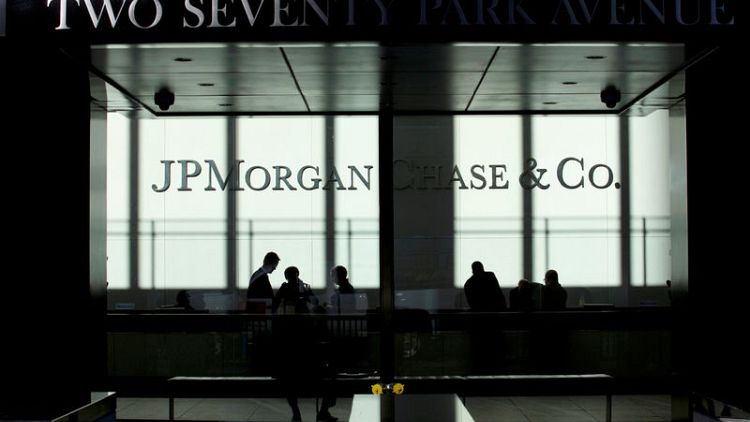By Byron Kaye
SYDNEY (Reuters) - Two former executives of JPMorgan Chase & Co <JPM.N> in Australia agreed to co-operate with regulators on condition of immunity in a criminal cartel case by the state against Citigroup <C.N> and Deutsche Bank <DBKGn.DE>, a Sydney court heard on Friday.
The three global banks worked on an A$3 billion (£1.6 billion) stock issue for Australia and New Zealand Banking Group Ltd <ANZ.AX> in 2015. Citi, Deutsche, ANZ and their staff were charged last year with withholding crucial information from shareholders about the sale.
State prosecutors have accused the banks of forming a criminal cartel to either "directly or indirectly" restrict the supply of ANZ shares or maintain the price of ANZ shares, according to court documents.
Four phone calls in August 2015, which prosecutors say involved bankers from all the companies, are at the heart of the case, brought by the Australian Competition and Consumer Commission (ACCC).
Deutsche's defence lawyer, Murugan Thangaraj, told the court on Friday that former JPMorgan capital markets managers Jeffrey Herbert-Smith and Richard Galvin were given immunity, which added to questions over the credibility of their witness statements.
Thangaraj said JPMorgan had only sought immunity "to save it being at this bar table".
The former JPMorgan managers gave witness statements about the calls after being shown transcripts and other bankers' notes of the conversations, Citi lawyer Dean Jordan told the court.
"Quite obviously we have a circumstance where the ... recollection of a key witness would appear to have been contaminated by the process by which the statement was taken," Jordan said.
Two of the phone calls were recorded without the consent of all the participants, and "it is an offence to do that," Jordan said.
Recordings and transcripts of the calls should therefore not be allowed as evidence, he added.
A JPMorgan spokesman declined to comment.
None of the accused companies or people have entered formal pleas and no trial date has been set, but all have said they would plead not guilty.
The case could have major implications for the underwriting business and lead to increased scrutiny from regulators worldwide.
The defence lawyers argued on Friday for the right to question four officers from the competition regulator who worked on the case.
State prosecutors have opposed allowing the officers to testify, saying it may violate legal privilege and inappropriately expose the regulator's private workings.
The next hearing is Nov. 8, when the magistrate, Jennifer Atkinson said she will rule on whether the defence can cross-examine the ACCC officers.
(Reporting by Byron Kaye in Sydney; additional reporting by Jonathan Barrett and Paulina Duran; editing by Gerry Doyle)



